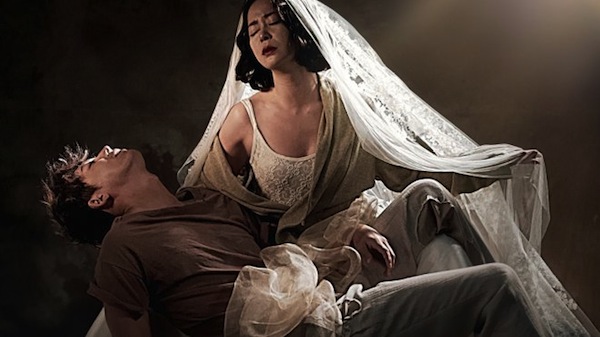You have no items in your cart. Want to get some nice things?
Go shoppingKorean auteur Kim Ki-duk returns to British cinemas with his drama about a lost soul and mother trying to do right by her son infused with the director’s trademark sex and violence.
The work of renowned Korean auteur, Kim Ki-duk, has always been a study of extremes. Whether he is concerned with social, spiritual or emotional themes, he does so by juxtaposing grace with savagery and carnality. Though there are often elements of mysticism underpinning his films, it is through style and tone rather then an overbearing religiosity with which it is manifested. His work could be glibly summarised as ‘from the sublime to the vicious’ and throughout his career he has pitched his films at various points along that conflicted scale.
There are unremittingly grim offerings such as The Isle, and Bad Guy, which combine his regular portrayals of prostitution and violence with faint dreamlike notes. In contrast, he has embraced serene magical realism but without ever fully eliminating the menace of bloodletting and maltreatment. Of course, much Korean cinema of the last decade or so has delved into stylish brutality, and Kim’s more unsettling moments are often coloured with – or accompanied by – a subversive sexuality.
With his latest, Pieta, the director has once again managed to court controversy, provoking intensely mixed reactions with the film’s distressing content. Despite periods of unrelenting bleakness and scenes of cruelty and abuse, it managed to win over the jury at the 2012 Venice Film Festival claiming the coveted top prize, The Golden Lion.
The title reflects a common subject of Christian art that portrays the Virgin Mary’s lamentation at the death of her son, whilst cradling his lifeless body. By also evoking this famous icon in the film’s poster, Kim immediately suggests to his audiences that we are dealing with a potential religious allegory, but expectation that the protagonist is cast in the role of Christ are swiftly countered. Gang-do (Lee Jeong-jin) is a sullen young loner with a less than reputable job as an enforcer for a loan shark. In reality, this role involves mercilessly crippling those that have defaulted on their payments in order to claim the deficit through their health insurance.
He lives in squalor, eating only freshly slaughtered livestock, seemingly unaffected by the things he does with his life. He appears to take little real pleasure in the violence – as we might expect from such a character in Western cinema – and the apathy and disinterest for his days amongst the pleading debtors and maimed limbs make him appear amoral. Although Pieta rarely dwells on the visual aspects of the agony caused, the opening half of the film is tough viewing.
A woman arrives, Mi-son (Jo Min-soo), claiming to be his long lost mother. This abandonment of Gang-do seems to explain the arrested development that has resulted in his sexual repression and abhorrent behaviour. He rejects this woman out of hand, but his reaction to his next defaulter shows signs of a thaw in his icy demeanour.
Mi-son’s persistence soon sees her living in his cramped apartment having endured a thoroughly horrific episode that amounts to cannibalism and an incestuous sexual assault. As their relationship develops, the wince-inducing moments dissipate and the film transforms into a far more studied psychological examination of the lead characters. Questions begin to rise as to whether Mi-son has been entirely honest with her newfound son, and forgiveness emerges as the films key theme.
There is nothing like the seediness of Bad Guy in Pieta but neither does Kim opt for the ethereal camerawork of something like 3-Iron. He has hardly lost his compositional eye, but he shoots the action in a comparatively ugly, rough-and-ready style that not only reflects the film’s minuscule budget and schedule but also the grubbiness of the setting and situation. With handheld shots and the colour kept largely to shades of green and grey, it works firmly against the magical realism often so prevalent in the director’s work.
The ‘real world’ that he places the audience in is one in which entire scenes revolve around the discussion of money; it’s a place of wealth and violence at their most extreme and raw. The one person who seems capable of existing outside of this system is Mi-son and she begins to redeem Gang-do. Tragically, though, as her motives become clear, it transpires that nobody in Pieta is truly capable of escaping capitalism’s destructive trajectory.
About Ben Nicholson
A compulsive cinephile, Ben fell in love with film through repeated viewings of Michael Jackson being transformed into a werewolf behind the scenes of John Landis' seminal video for Thriller. This passion has manifested itself in his consumption of movies and the enjoyment derived from reading, discussion and writing about cinema which can all be found on New Urbanite. His favourite films include The Third Man, In The Mood For Love, Badlands, 3 Iron, Casablanca, Ran, and Last Year in Marienbad - to name but a few.





